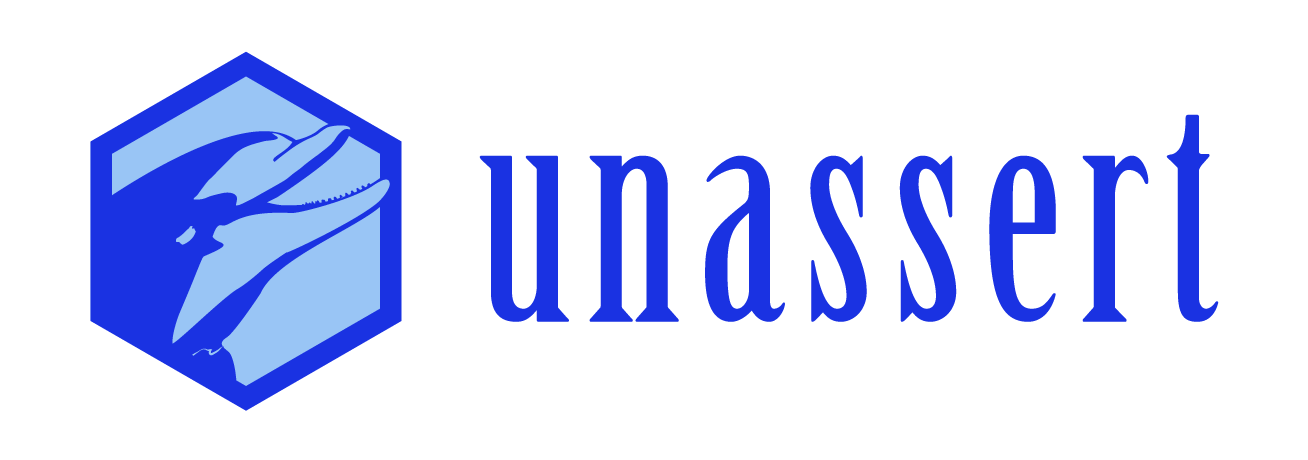unassertify
v3.0.1
Published
Browserify transform for unassert: Encourages programming with assertions by providing tools to compile them away
Downloads
57,186
Maintainers
Readme
unassertify
Browserify transform for unassert: Encourages programming with assertions by providing tools to compile them away.
RELATED MODULES
- unassert: Encourages programming with assertions by providing tools to compile them away.
- babel-plugin-unassert: Babel plugin for unassert
- webpack-unassert-loader: Webpack loader for unassert
- gulp-unassert: Gulp plugin for unassert
- unassert-cli: CLI for unassert
- rollup-plugin-unassert: RollupJS plugin for unassert
INSTALL
$ npm install --save-dev unassertifyHOW TO USE
via CLI
$ $(npm bin)/browserify -t unassertify /path/to/src/target.js > /path/to/build/target.jsvia API
const source = require('vinyl-source-stream');
const browserify = require('browserify');
const glob = require('glob'),
gulp.task('production_build', function() {
const files = glob.sync('./src/*.js');
const b = browserify({entries: files});
b.transform('unassertify');
return b.bundle()
.pipe(source('bundle.js'))
.pipe(gulp.dest('./dist'));
});EXAMPLE
For given math.js below,
'use strict';
const assert = require('node:assert');
function add (a, b) {
console.assert(typeof a === 'number');
assert(!isNaN(a));
assert.equal(typeof b, 'number');
assert.ok(!isNaN(b));
return a + b;
}Run browserify with -t unassertify to transform file.
$ $(npm bin)/browserify -t unassertify /path/to/demo/math.js > /path/to/build/math.jsYou will see assert calls disappear.
'use strict';
function add(a, b) {
return a + b;
}SUPPORTED PATTERNS
Assertion expressions are removed when they match patterns below. In other words, unassertify removes assertion calls that are compatible with Node.js standard assert API (and console.assert).
assert(value, [message])assert.ok(value, [message])assert.equal(actual, expected, [message])assert.notEqual(actual, expected, [message])assert.strictEqual(actual, expected, [message])assert.notStrictEqual(actual, expected, [message])assert.deepEqual(actual, expected, [message])assert.notDeepEqual(actual, expected, [message])assert.deepStrictEqual(actual, expected, [message])assert.notDeepStrictEqual(actual, expected, [message])assert.match(string, regexp[, message])assert.doesNotMatch(string, regexp[, message])assert.throws(block, [error], [message])assert.doesNotThrow(block, [message])await assert.rejects(asyncFn, [error], [message])await assert.doesNotReject(asyncFn, [error], [message])assert.fail([message])assert.fail(actual, expected, message, operator)assert.ifError(value)console.assert(value, [message])
unassertify also removes assert variable declarations,
import assert from "assert"import assert from "assert/strict"import assert from "node:assert"import assert from "node:assert/strict"import * as assert from "assert"import * as assert from "node:assert"import * as assert from "assert/strict"import * as assert from "node:assert/strict"import { strict as assert } from "assert"import { strict as assert } from "node:assert"import { default as assert } from "assert"import { default as assert } from "node:assert"const assert = require("assert")const assert = require("node:assert")const assert = require("assert/strict")const assert = require("node:assert/strict")const assert = require("assert").strictconst assert = require("node:assert").strictconst { strict: assert } = require("assert")const { strict: assert } = require("node:assert")
and assignments.
assert = require("assert")assert = require("node:assert")assert = require("assert/strict")assert = require("node:assert/strict")assert = require("assert").strictassert = require("node:assert").strict
Auto Variable Tracking
unassert automatically removes assertion calls based on their imported variable names.
So if import declaration is as follows,
import strictAssert, { ok, equal as eq } from 'node:assert/strict';
unassert removes all strictAssert, ok, eq calls.
AUTHOR
CONTRIBUTORS
OUR SUPPORT POLICY
We support Node under maintenance. In other words, we stop supporting old Node version when their maintenance ends.
This means that any other environment is not supported.
NOTE: If unassertify works in any of the unsupported environments, it is purely coincidental and has no bearing on future compatibility. Use at your own risk.
LICENSE
Licensed under the MIT license.



